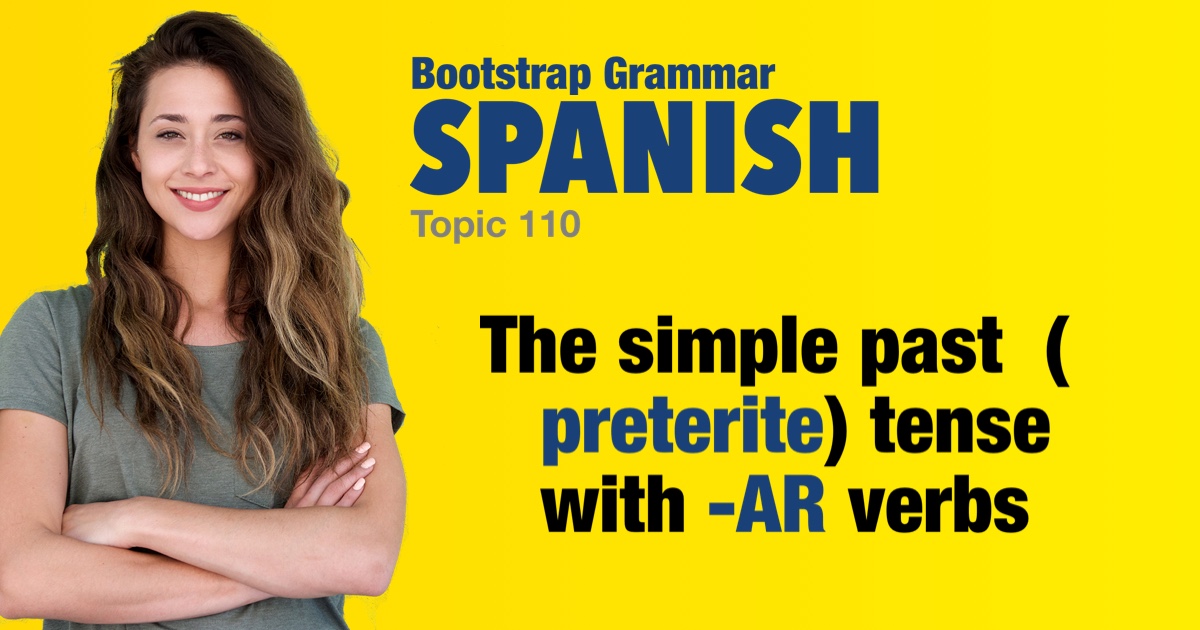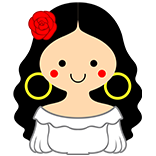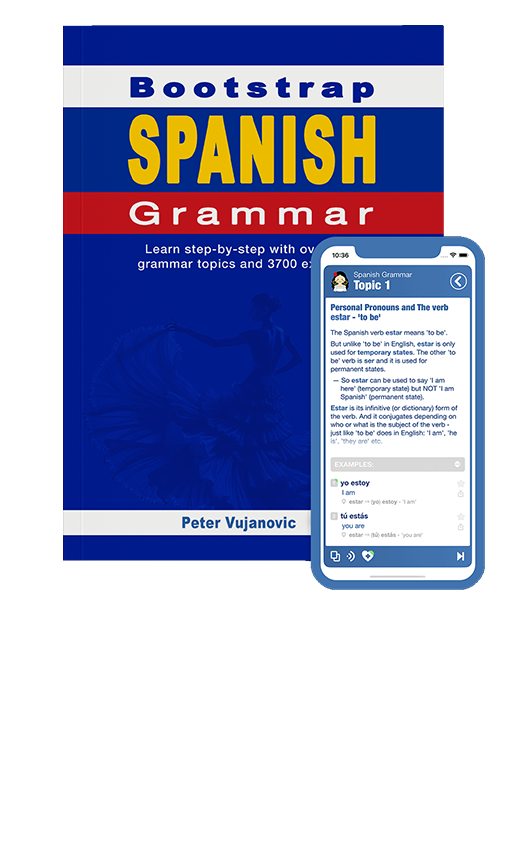Spanish grammar - The simple past (preterite) tense with -AR verbs |
|||
|
|||
The pretérito perfecto simple (or simply preterite) is used to describe actions completed at a specific point in the past. Verbs have a preterite conjugation that follows rules for the regular -AR, -ER and -IR verbs. In this topic we look at the preterite conjugations for regular -AR verbs: First drop the -ar ending to get the verb root. Then add the following endings: • For yo add -é so for example hablar ⇒ hablé • For tú add -aste so hablar ⇒ hablaste • For él, ella, usted add -ó so hablar ⇒ habló • For nosotros, nosotras add -amos so hablar ⇒ hablamos • For vosotros, vosotras add -asteis so hablar ⇒ hablasteis • For ellos, ellas, ustedes add -aron so hablar ⇒ hablaron |
| Examples: | |
|
Ayer hablé con mi amigo.
Yesterday, (I) talked to my friend.
|
|
|
Terminaste el proyecto anoche.
(You, familiar) finished the project last night.
|
|
|
Ella caminó por el parque.
She walked through the park.
|
|
|
Nosotros estudiamos para el examen.
We studied for the exam.
|
|
|
Vosotros escuchasteis la canción.
You all (familiar) listened to the song.
|
|
|
¿Jugaron ellos al fútbol?
Did they (masculine) play soccer?
|
|
|
Yo compré un libro nuevo.
I bought a new book.
|
|
|
Tú ayudaste a tu hermano.
You (familiar) helped your brother.
|
|
|
¿Ella bailó toda la noche?
Did she dance all night?
|
|
|
Nosotros miramos la televisión.
We watched TV.
|
|
|
Vosotros trabajasteis en el proyecto.
You all (familiar) worked on the project.
|
|
|
Ellos decoraron la casa.
They (masculine) decorated the house.
|
|
|
Yo cociné la cena.
I cooked dinner.
|
|
|
¿Por qué no les gustó el postre?
Why didn't they like the dessert?
|
|
|
¿Jugaste tú al tenis?
Did you (familiar) play tennis?
|
|
|
Ella escuchó la música.
She listened to the music.
|
|
|
Yo no hablé con el profesor ayer.
I did not talk to the teacher yesterday.
|
|
|
Tú no estudiaste para el examen.
You (familiar) did not study for the exam.
|
|
|
Yo me levanté temprano.
I got up early.
|
|
|
Nosotros no viajamos a España el año pasado.
We did not travel to Spain last year.
|
|
|
Ellos no compraron nada en la tienda.
They (masculine) did not buy anything at the store.
|
|
|
A todos nosotros nos encantó la película.
We all loved the movie.
|
|
|
No me gustó nadar en el agua fría.
(I) didn't like swimming in the cold water.
|
|
 |
|




